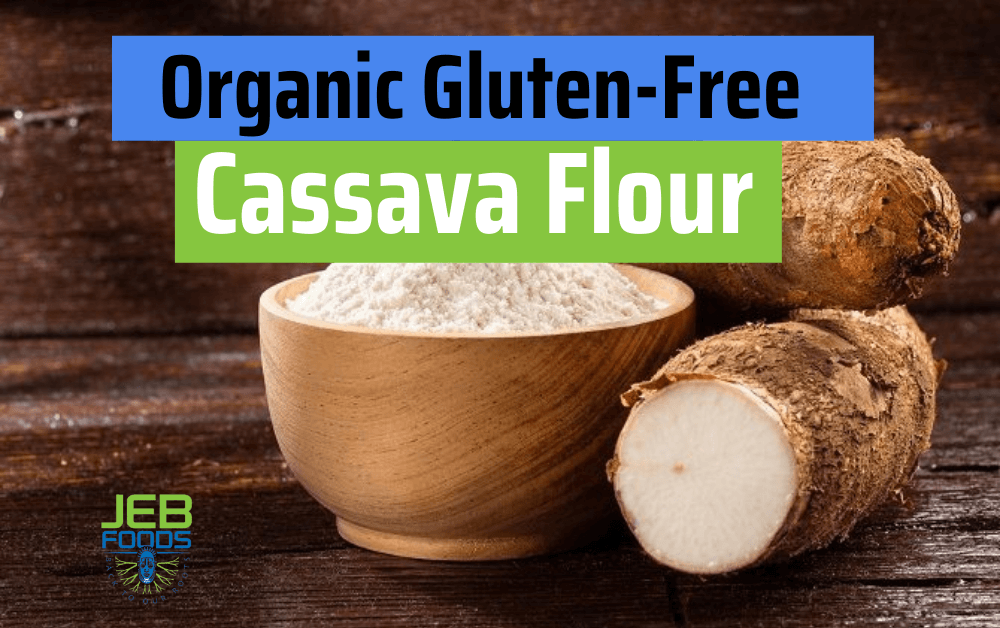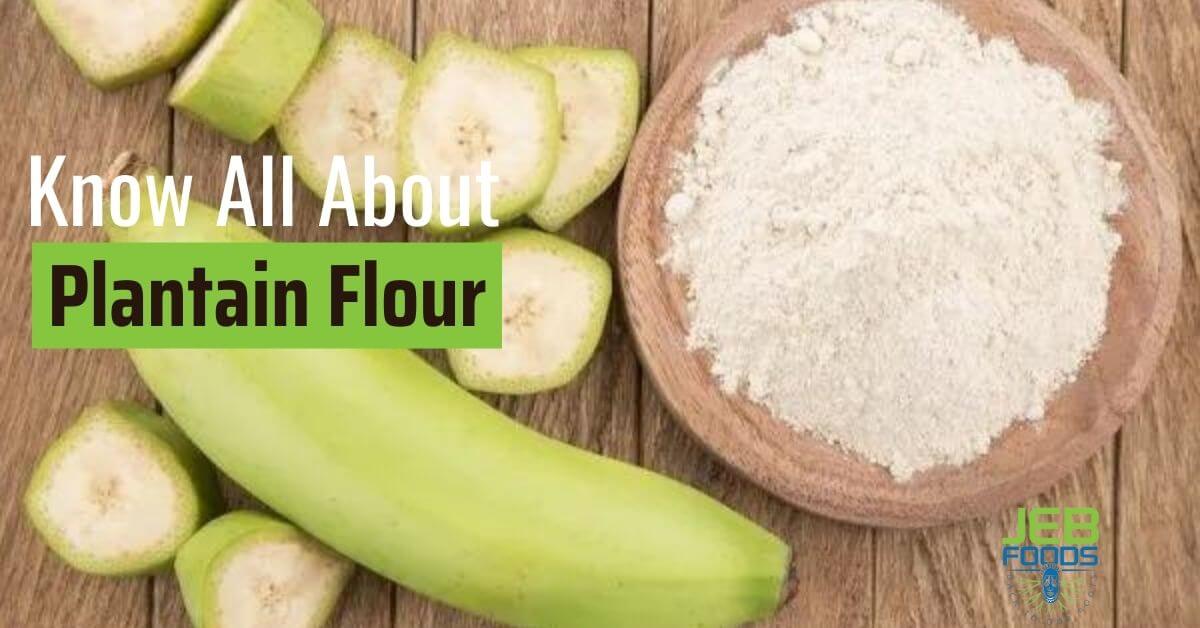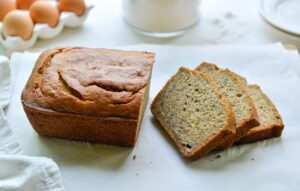Organic gluten-free cassava flour is a type of flour that has not been modified or contains chemicals. This refers to chemical-free flour both during the cultivation of the roots and the processing of the cassava roots into flour.
Organic cassava flour is naturally gluten-free, grain and nut-free, unlike wheat products. This makes it an excellent gluten-free flour replacement since it shares similarities with yam and potatoes.
Also a good alternative to grain-based flour that has gluten and does not hurt the body, and it also contains some amount of fiber, vitamins and minerals. It could serve as a better alternative to grain-based and traditional flours.
Organic gluten-free cassava flour is a great recipe for preparing various foods like baking, food additive, thickeners etc.
What Is Organic Cassava Flour
Table of Contents
ToggleCassava flour is a product from cassava roots, but not all cassava roots are organically grown. Some are modified by the use of chemicals and different forms of processing in producing cassava flour.
Now that we have seen this, organic cassava flour is the process of not interfering with nature, from the cultivation of cassava roots to the processing of the cassava flour, the packaging and transportation; all are organic. No chemical, no artificial flavor etc
Based on my experience in the US market and for 8 years of explicit baking, I recommend the best organic cassava flour I found. Jeb Foods cassava flour.
It is non-GMO, grain-free, gluten-free, all-natural ingredients and is certified for consumption. You can read more about them here
Facts About Organic Gluten-Free Cassava Flour
Organic gluten-free cassava flour is a derivative of organic cassava roots carefully processed to give a wonderful kitchen experience. It has a smooth, powdery and fine texture that is appealing to the eyes.
It is worthy of note that cassava root contains naturally occurring cyanide which is harmful to the body if eaten raw. However, cassava flour in commercial quantities does not contain any harmful level of cyanide.
Cassava is a root crop with high starch content, so you’d expect it to have a high percentage of carbohydrates. For instance, cassava has double the calories and carbohydrates of sweet potato per 50 grams.
With the rise of gluten-free diets, cassava flour has become more acceptable and available.
Get your organic cassava here with a 10% discount.
Health Benefits Of Organic Gluten-Free Cassava Flour
Organic, gluten-free cassava flour produces carbohydrate which serves as a major source of energy for the body.
It provides the needed energy for the muscles, central nervous system, brain and other organs in the body to function effectively.
Cassava flour is an excellent choice of flour for people living with diabetes, high blood pressure, or high cholesterol.
Organic, gluten-free cassava flour contains high resistant starch, which is beneficial to the body. Resistant starch feeds the beneficial bacterias in the guts, prevents diseases, promotes weight loss, helps ease inflammation and aids digestion.
It also aids metabolism and helps reduces the risk of obesity and type 2 diabetes. Read more about the resistant starch present in cassava flour here.
There are more benefits of organic cassava flour; let’s see them
Organic cassava flour is very rich in potassium. Which is one of the essential minerals required by the body to function very well. Also an electrolyte that helps in the body’s conduction of impulses.
It helps the muscles to contract, regularizes the heartbeat and helps to move nutrients into the cells. This helps maintain the body’s blood pressure, normalizes water balance, aid digestion, and helps maintain its pH balance.
Deficiencies of potassium could lead to muscle cramps, weakness, constipation or vomiting.
Another health benefit of consuming organic cassava flour, which is naturally gluten-free, is its fiber composition.
This includes part of the food consumed which does not digest but passes through the stomach, small intestine and out of the body.
- It regulates guts movements.
- Also helps to reduce the chance of having constipation by increasing the weight and size of your stool, and it also softens it.
- It may also help solidify stool when necessary.
Cassava Flour vs. Wheat Flour with regards to Gluten
Wheat flour is typically made from enriched wheat. On the other hand, Cassava flour is made from cassava root, which is gluten-free and healthy for the body.
Wheat flour contains gluten and is deficient in several nutrients such as fiber and vitamin B, removed during manufacturing. Cassava flour does not contain gluten, and it also has some fiber and mineral contents.
Gluten is a protein found in grains such as wheat, rye, and barley. In wheat, it acts as a glue, allowing foods to stick together and keep their shape. Gluten is commonly found in bread, cereal, pastries, fried foods, and a variety of wheat flour-based foods. Cassava flour, on the other hand, is gluten-free. All of these foods, however, can be made gluten-free by using organic, gluten-free cassava flour.
However, most people dislike gluten meals because gluten can damage your small intestine and impair your body’s ability to absorb essential nutrients if you have this autoimmune digestive disease.
Gluten intolerance can cause problems with your digestive system. Symptoms such as stomach discomfort, bloating, diarrhea, and anemia are possible.
Cassava flour, on the other hand, is gluten-free. It contains much resistant starch, a form of starch that bypasses digestion and has characteristics comparable to soluble fiber.
Consuming meals high in resistant starch may offer several health advantages.
Resistant starch feeds the good bacteria in your stomach, which may reduce inflammation and promote digestive health.
Resistant starch has fewer calories than typical starch and is gluten-free, making it an excellent alternative for baking.
Organic Gluten-Free Cassava Flour Impact On Celiac Disease
Gluten is a form of protein that is found in several grains like wheat and barley. It performs several functions in food preparation, but many people are highly intolerant of gluten, especially celiac disease.
The consumption of gluten diets causes an inflammatory reaction, damages the small intestines and brings discomfort to celiac disease patients.
Celiac disease is an autoimmune disorder in which gluten destroys the small intestine, while nonceliac gluten sensitivity is a food intolerance that causes discomfort after eating gluten.
Despite the adverse effect of gluten on celiac disease patients, it’s still been frequently used as an additive in the baking industry, but I recommend you stick to a gluten-free diet routine.
Find here more about gluten-free flours
What Can You Make With Cassava Flour
The number one use for cassava in the United States is baking. Cassava flour is a great gluten-free alternative, especially for those that can’t consume almond or coconut flour.
You can substitute cassava flour with almost any other plant-based flour.
Cassava is often used to substitute wheat flour, especially to make bread, cakes, pasta and dumplings. It is also used to make starchy custards and puddings.
Cassava flour is excellent for making flatbreads, tortillas and crepes that you can griddle on the stove or grill outside. Also, this flour is great to use for pancakes or waffles.
Try making a decadent chocolate layered cake to celebrate your new favorite gluten-free flour if you’re feeling adventurous.
Cassava flour absorbs more liquid than wheat flour. Therefore, you may need to use slightly less cassava flour than regular wheat flour in a recipe.
Some recipes combine cassava flour with other plant-based, gluten-free flours, while others stick to cassava flour alone.
Here are a few of my favorite Cassava flour recipes you can check out.

Why The Need Organic Gluten-Free Cassava Flour
- Non-celiac gluten sensitivity, also known as gluten intolerance—A gluten intolerance with symptoms comparable to celiac disease but without increased antibodies and intestinal damage. GSE does not have a diagnostic test, but it is diagnosed with chronic symptoms and a negative celiac test.
- Dermatitis herpetiformis —A skin rash caused by gluten consumption. An immunological reaction manifests as a persistent red, itchy skin rash with blisters and pimples. Although persons with celiac disease may also have IT, this is not always the case.
- Damage to the Gut Biome – The gut biome, aka the gut flora, is the collection of friendly bacteria that live in your gut.
They help regulate your immune system, control intestinal permeability, digest your food, synthesize nutrients like vitamin K2, send hunger/fullness signals to your brain, and do all kinds of other stuff.
Even in people who aren’t sensitive to gluten at all, inflammation caused by other components of wheat can also rebound on the gut biome.
- Increased Intestinal Permeability – Inflammation in the gut contributes to a problem called intestinal permeability. The gut has a complex system of “border control” that lets digested food into your bloodstream (this is how you get nutrients from it) while keeping everything else out.
Every day, you swallow millions of random viruses, bacteria, indigestible molecules like dust, and other stuff that needs to go out the other end, not into your bloodstream.
- Intestinal permeability is a big problem – most notably because it’s an essential factor in developing autoimmune diseases.
The Nutritional Value of Organic Cassava Flour
Cassava root is essentially a source of carbohydrates and calories. It has very little protein and comparatively low vitamins and minerals, with the possible exception of calcium and vitamin C plus a few B vitamins.
Food Nutrition Table lists a few additional nutrients in 100 grams of cassava flour.
The largest amount of nutrient in cassava flour is vitamin C which is 5 milligrams. It has a tenth of a milligram each of several B vitamins.
Also listed are slightly different values for:
- carbohydrates (82 grams)
- fiber (2 grams)
- protein (2.8 grams
Cassava flour also contains some minerals – It is a good source of minerals such as
- calcium [16 mg]
- phosphorus [27 mg]
- manganese 90.4 mg]
- iron [0.3]
- potassium [271 mg]
With this much variability in listed nutrient content, it might be best to assume cassava flour is high in carbohydrates and fiber and low in fat and protein with possible content of some vitamins and minerals.
Cassava flour contains resistant starches ranging from .19-2.21% – with similar properties to soluble fiber.
Best Organic Gluten-Free Cassava Flour Practice
One of the best ways to maximize the use of cassava flour is to mix it with other high nutrient foods to increase its fiber, vitamins, and minerals content.
Gradually introducing cassava flour into your cooking and baking recipe is another important point to note. This allows you to integrate it into your diet without much challenge.
Check here to see the guide to a gluten-free flour mix
Can Organic Cassava Flour Be Used In The Same Way As Regular Flour
Unlike other grain-free and gluten-free replacements, you can very much substitute this cassava flour for all-purpose flour and get a very excellent, if not fantastic, outcome.
To put it another way, you don’t have to go to the bother of creating (or purchasing) a gluten-free flour mix. Cassava flour can be used in place of wheat flour in a variety of recipes.
Is Organic Cassava Flour High In Glycemic Index (GI)
The glycemic index varied from 91 to 94. According to the findings of this study, using cassava flour in bread production may not pose a risk to people’s blood glucose responses.
Cassava flour has a low glycemic index of 46, which indicates it is less likely to induce a fast spike in blood glucose levels than other meals.
Cassava may be a better alternative for people with diabetes than white potatoes, with a high glycemic index of 85.
Final Thought
Organic Gluten-free cassava flour is versatile, multi-purpose, flavorful and smooth. It makes up a good source of nutrients and energy, which is beneficial to the body.
Remember, it is a perfect replacement for grain-based flour. It is fast becoming a perfect substitute for grain-based gluten flours because it doesn’t have a strong taste, and it’s great for making burger patties, baking, and thickening sauces.
If you have celiac disease then, Organic, gluten-free cassava flour is a perfect solution as It will give you a good diet and also gives a great taste which is like the one obtained when traditional flour is used.




